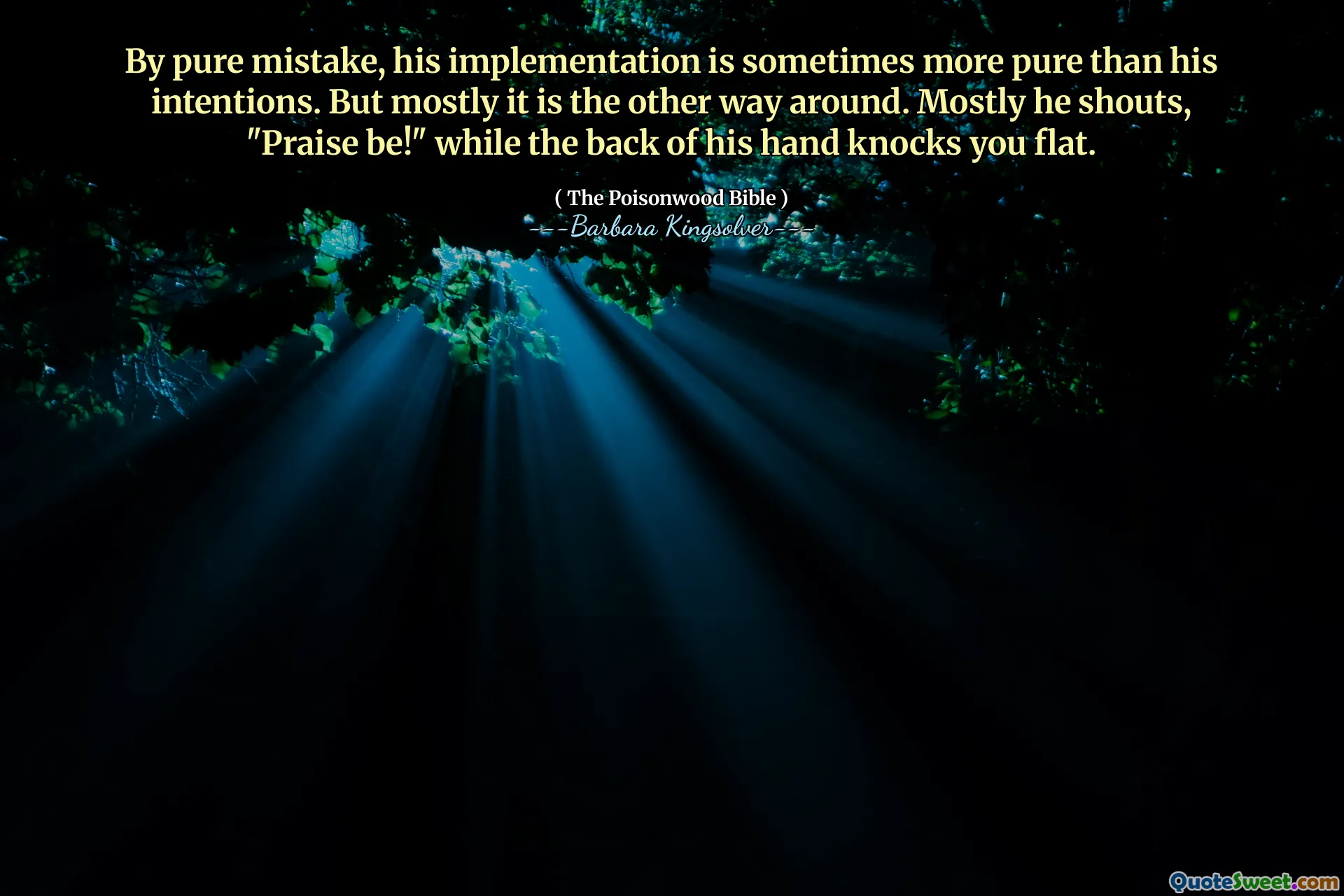
By pure mistake, his implementation is sometimes more pure than his intentions. But mostly it is the other way around. Mostly he shouts, "Praise be!" while the back of his hand knocks you flat.
In "The Poisonwood Bible," Barbara Kingsolver explores the complexities of intention versus outcome through her characters. One central idea is that a person's actions can sometimes contradict their intentions. The protagonist's errors, whether accidental or not, often yield results that starkly contrast with what he aimed to achieve. His misguided zeal leads to unintended damage, highlighting the difference between noble intentions and the harsh realities of their execution.
The quote emphasizes the irony in his character; while he exclaims gratitude and praise, his actions can be quite harmful. This duality illustrates the conflict between words and deeds, suggesting that enthusiasm and conviction can result in destructive consequences. The narrative thus critiques the gap between aspirational ideals and the chaotic nature of human behavior.











